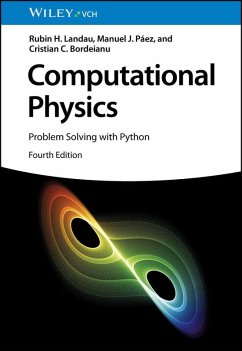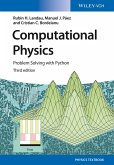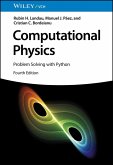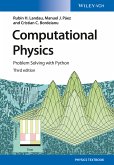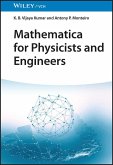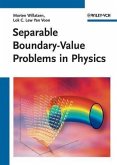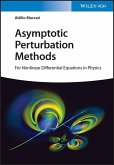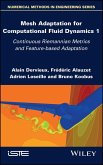The classic in the field for more than 25 years, now with increased emphasis on data science and new chapters on quantum computing, machine learning (AI), and general relativity
Computational physics combines physics, applied mathematics, and computer science in a cutting-edge multidisciplinary approach to solving realistic physical problems. It has become integral to modern physics research because of its capacity to bridge the gap between mathematical theory and real-world system behavior.
Computational Physics provides the reader with the essential knowledge to understand computational tools and mathematical methods well enough to be successful. Its philosophy is rooted in "learning by doing", assisted by many sample programs in the popular Python programming language. The first third of the book lays the fundamentals of scientific computing, including programming basics, stable algorithms for differentiation and integration, and matrix computing. The latter two-thirds of the textbook cover more advanced topics such linear and nonlinear differential equations, chaos and fractals, Fourier analysis, nonlinear dynamics, and finite difference and finite elements methods. A particular focus in on the applications of these methods for solving realistic physical problems.
Readers of the fourth edition of Computational Physics will also find:
Computational Physics is ideal for students in physics, engineering, materials science, and any subjects drawing on applied physics.
Computational physics combines physics, applied mathematics, and computer science in a cutting-edge multidisciplinary approach to solving realistic physical problems. It has become integral to modern physics research because of its capacity to bridge the gap between mathematical theory and real-world system behavior.
Computational Physics provides the reader with the essential knowledge to understand computational tools and mathematical methods well enough to be successful. Its philosophy is rooted in "learning by doing", assisted by many sample programs in the popular Python programming language. The first third of the book lays the fundamentals of scientific computing, including programming basics, stable algorithms for differentiation and integration, and matrix computing. The latter two-thirds of the textbook cover more advanced topics such linear and nonlinear differential equations, chaos and fractals, Fourier analysis, nonlinear dynamics, and finite difference and finite elements methods. A particular focus in on the applications of these methods for solving realistic physical problems.
Readers of the fourth edition of Computational Physics will also find:
- An exceptionally broad range of topics, from simple matrix manipulations to intricate computations in nonlinear dynamics
- A whole suite of supplementary material: Python programs, Jupyter notebooks and videos
Computational Physics is ideal for students in physics, engineering, materials science, and any subjects drawing on applied physics.
Dieser Download kann aus rechtlichen Gründen nur mit Rechnungsadresse in D ausgeliefert werden.

